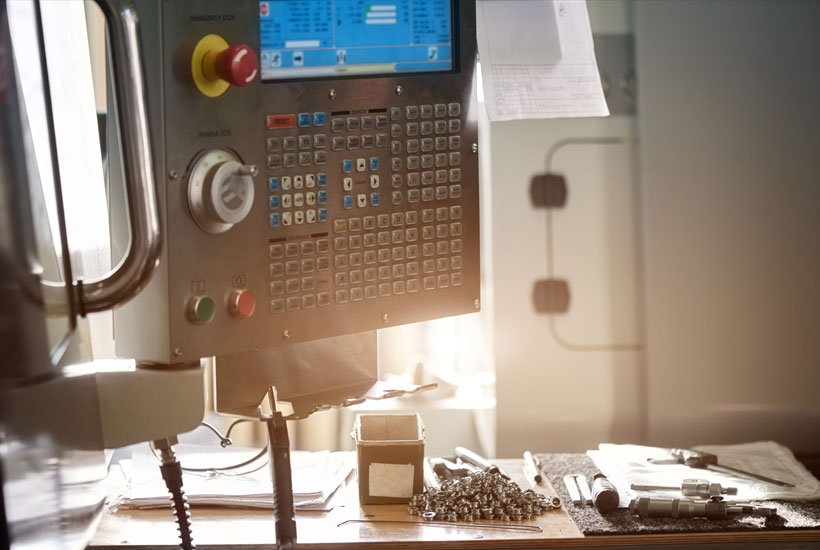DESIGN FOR MANUFACTURING ENGINEERING SUPPORT SERVICES
Our Design for Manufacturing support team is fully capable of aiding in the manufacturing engineering design to save our customers’ valuable time and money.

Design for Manufacturing
Design for Manufacturing (DFM) is a crucial strategy in the engineering and production process, especially for Swiss machined components and assemblies. Millennium’s engineering team excels in collaborating with our customers’ engineering teams to maximize the advantages of DFM. The benefits of applying DFM principles to Swiss machined components and assemblies include:
DFM Brings Significant Benefits
Incorporating DFM principles into the design of Swiss machined components and assemblies brings significant benefits in terms of precision, cost efficiency, manufacturability, development time, assembly ease, reliability, performance, and sustainability. By focusing on how parts will be manufactured from the outset, designers can create more efficient, cost-effective, and high-quality products.
Partnering with Millennium Precision on your next Swiss machining project ensures that you benefit from our expertise in Design for Manufacturing. Our commitment to precision, backed by our ISO certifications and robust engineering support, guarantees that your components will meet the highest standards of quality and reliability. By collaborating with us, you can streamline your production process, reduce costs, and achieve superior results. Trust Millennium Precision to deliver excellence and innovation in every part we produce.
Improved Precision and Quality
Swiss machining is inherently precise, but DFM can enhance this by optimizing part design for manufacturability:
- Reduced Complexity: Simplifying part geometries and avoiding unnecessary intricacies helps maintain tighter tolerances and minimizes the risk of defects.
- Consistency: Standardizing features and tolerances across similar parts ensures uniformity and high-quality output.
Cost Efficiency
DFM helps reduce production costs in several ways
- Material Utilization: Optimizing designs to minimize waste and select cost-effective materials reduces overall material costs.
- Reduced Machining Time: Simplifying designs and reducing the number of operations needed speeds up the machining process, cutting down on labor and machine time.
Enhanced Manufacturability
Designing with manufacturing capabilities in mind ensures that the parts can be produced efficiently:
- Ease of Machining: Incorporating features that align with the capabilities of Swiss machines, such as avoiding deep cavities or excessively thin walls, can streamline the manufacturing process.
- Tool Accessibility: Ensuring that all features of the part are accessible to the tools can prevent the need for complex setups or additional machining operations.
Shortened Development Time
DFM can significantly reduce the time from design to production:
- Fewer Iterations: By considering manufacturability early in the design phase, the need for multiple design revisions due to manufacturing constraints is reduced.
- Prototyping Efficiency: Simplified and optimized designs lead to faster and more accurate prototype creation, facilitating quicker testing and validation.
Improved Assembly
For assemblies involving Swiss machined components, DFM can enhance the overall assembly process:
- Fit and Function: Ensuring that components are designed for ease of assembly improves fit and function, reducing assembly time and effort.
- Standardized Components: Using standardized dimensions and features can simplify assembly processes and reduce the need for custom fittings or adjustments.
Enhanced Reliability and Performance
DFM leads to components that are not only easier to manufacture but also more reliable:
- Durability: Optimizing designs to avoid weak points and stress concentrations can enhance the durability and lifespan of components.
- Performance: Well-designed components that meet tight tolerances and specifications contribute to the overall performance and reliability of the assembly.
Sustainability
DFM can contribute to more sustainable manufacturing practices:
- Material Efficiency: Optimizing material usage reduces waste and the environmental impact of excess material consumption.
- Energy Efficiency: Streamlining the manufacturing process can reduce energy consumption, making the production process more environmentally friendly.
How Can We Help?
For general inquiries or assistance, please fill out the easy form below. If you are looking for a Quote for a particular project, please use our RFQ page to ensure your request is received by the correct department.

